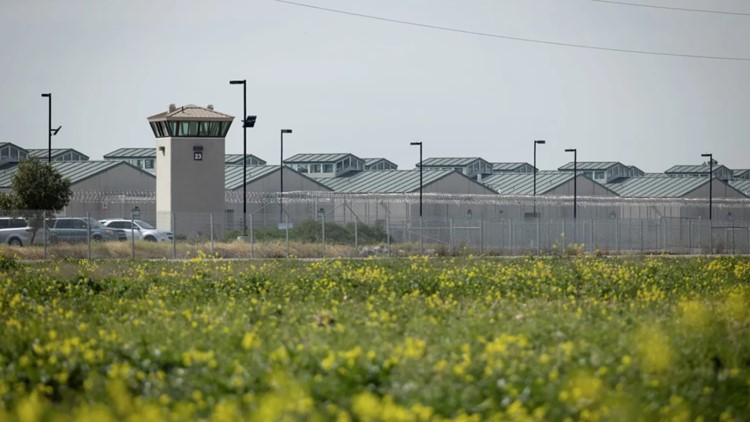CALIFORNIA, USA — This story was originally published in CalMatters
California’s prison psychiatrists are in line to get bonuses of at least $42,000 through a contract negotiated with Gov. Gavin Newsom just days before the state’s deadline to close out deals with public employees.
The tentative agreement reached last week for the Union of American Physicians and Dentists Bargaining Unit 16, which represents roughly 1,600 employees, averts a strike authorized by membership last month.
The deal includes some lucrative incentives, but it also reflects a high vacancy rate in hard-to-fill positions. The staff vacancy rate at state hospitals and prisons exceeds 50%, according to court documents filed by the state in June for an ongoing lawsuit over prison conditions and safety.
The deal offers the same 3% raise recently given to other California government employees in recent contracts, but it’s laden with bonuses, pay differentials and retirement benefits for doctors who work in prisons and state hospitals. It increases maximum pay ranges for many physicians and dentists, too, effectively raising salaries for experienced employees.
The contract is projected to cost $234.4 million over three years. Last week, the Newsom administration released a tentative contract with the union representing 26,000 state correctional officers that is expected to cost $1 billion over the same timeframe. Both deals must be ratified by union members and passed by the Legislature this week.
Last month, 91% of the doctors’ union members authorized a strike if the group’s bargaining team could not reach an agreement with the Newsom administration.
“It was a real grueling six months with the state. They play games and try to divide the unit,” said R. Douglas Chiappetta, executive director of the union. “We held strong and had solidarity. We were very damn serious about striking.”
The team is “very happy” with the deal, Chiappetta said.
California Correctional Health Care Services, the agency that oversees prison health care, declined to comment on the tentative agreement.
Psychiatrists who work in-person at prisons and state hospitals stand to gain the single biggest perk in the contract. They will receive a 15% annual bonus as well as a 135% hourly base rate increase for taking on additional patients. With a current starting salary of $285,948, that equates to a minimum bonus of $42,892 per year on top of any other bonuses negotiated in previous contracts.
The bonuses do not accrue toward the psychiatrists’ pensions in the California Public Employees’ Retirement System.
All workers represented by the union will get a 3% raise this year and a 2.5% raise next year as well as a one-time $1,000 essential worker bonus. The proposed contract also includes salary adjustments for doctors who work in state offices like the Department of Public Health and employees working at certain state hospitals where salaries were lower.
“We did a lot of equity in this contract. That’s what we are the most happy with — it’s not divisive,” union President Dr. Stuart Bussey said.
The union blames non-competitive salaries and a difficult patient population for persistent staffing shortages. Contracted psychiatrists used to temporarily fill vacancies are also paid twice as much as staff psychiatrists, Bussey said.
Dr. Nader Wassef, psychiatrist and chief of staff at Napa State Hospital, told CalMatters in August that his patients are “really very sick.” His hospital has not been fully staffed since 2014, he said, and currently has a 45% vacancy rate.
“I have patients that have been in the hospital 20 or 30 years,” Wassef said. “They become violent, some are in restraints … The patient population puts higher demand than what is in the community hospital.”
At 8.6%, the turnover rate for state doctors, psychiatrists and dentists exceeds the 6.9% turnover rate for all state employees, according to the most recent state employee total compensation report published by the California Department of Human Resources. The vacancy rate for primary care doctors is about 20%, according to California Correctional Health Care Services.
Prison staffing shortages make it difficult for the state to meet court-imposed staffing mandates that have been in place for more than two decades.
In March, a U.S District Court judge for California’s Eastern District issued the state a $1,000 per day fine for failing to implement appropriate suicide prevention measures in state prisons over the past eight years, including reducing the psychiatrist and case manager vacancy rate to 10% or below. That 10% benchmark was originally set by a judge in 2002.
More than one-third of state prisoners have serious mental health disorders, according to court documents.



